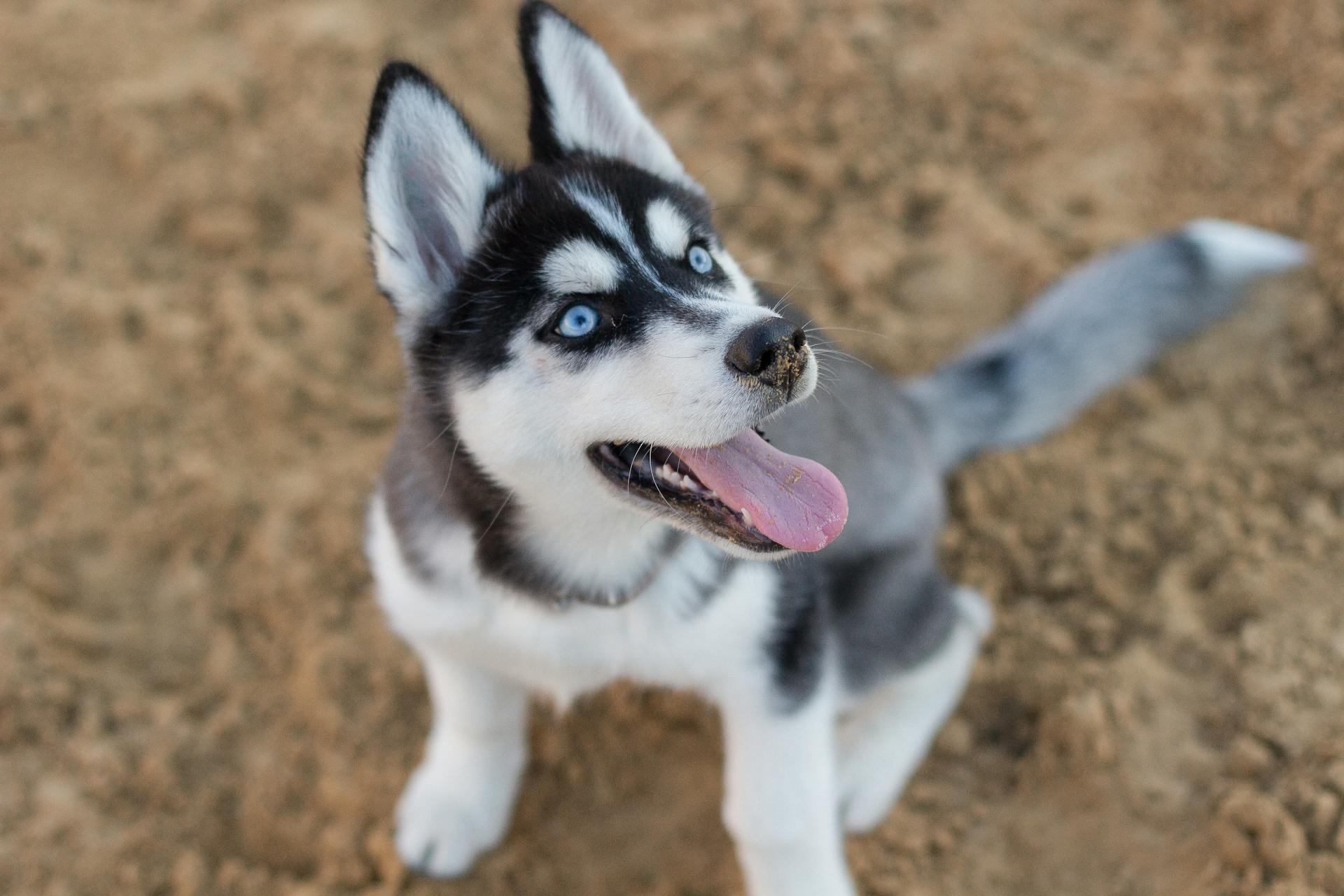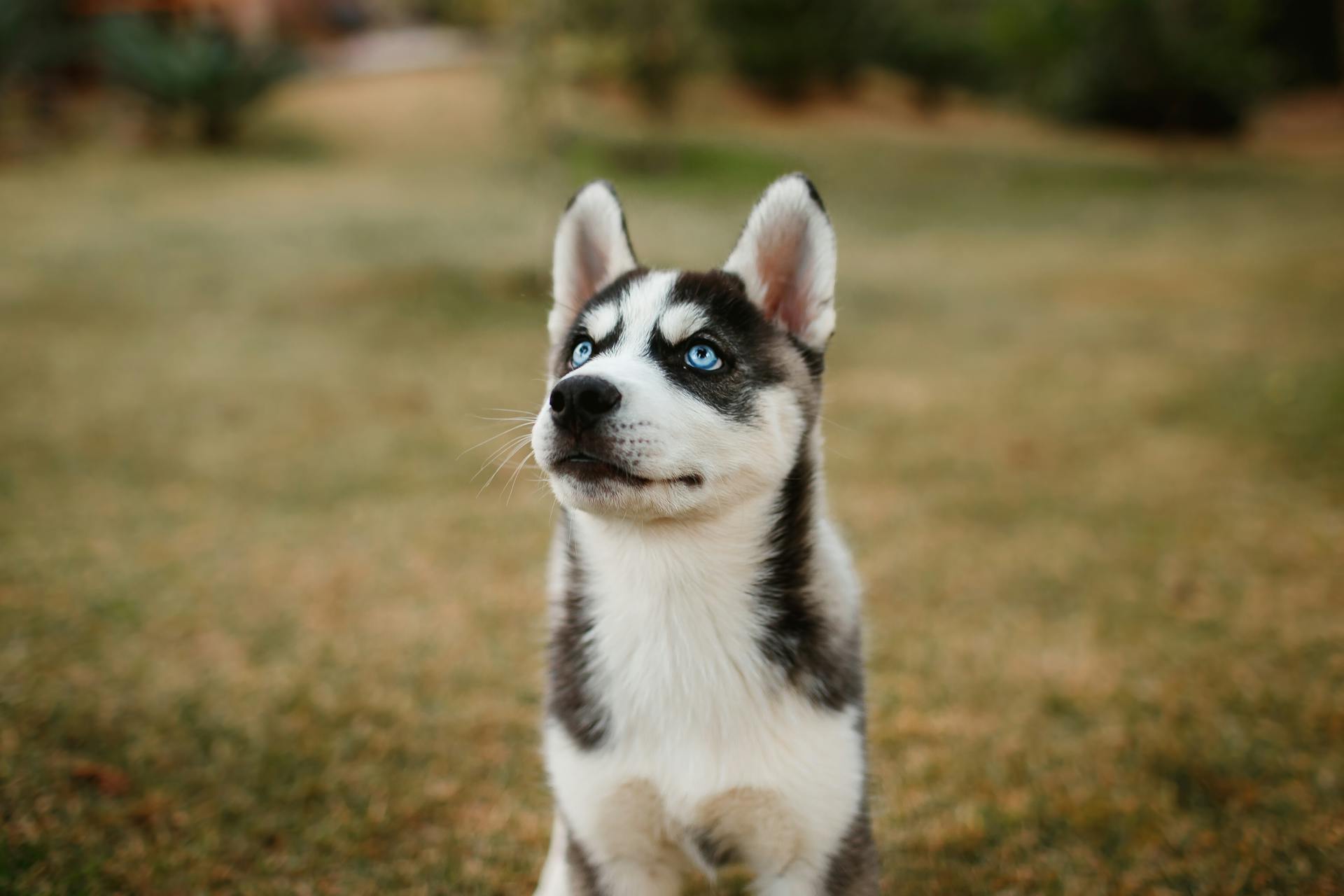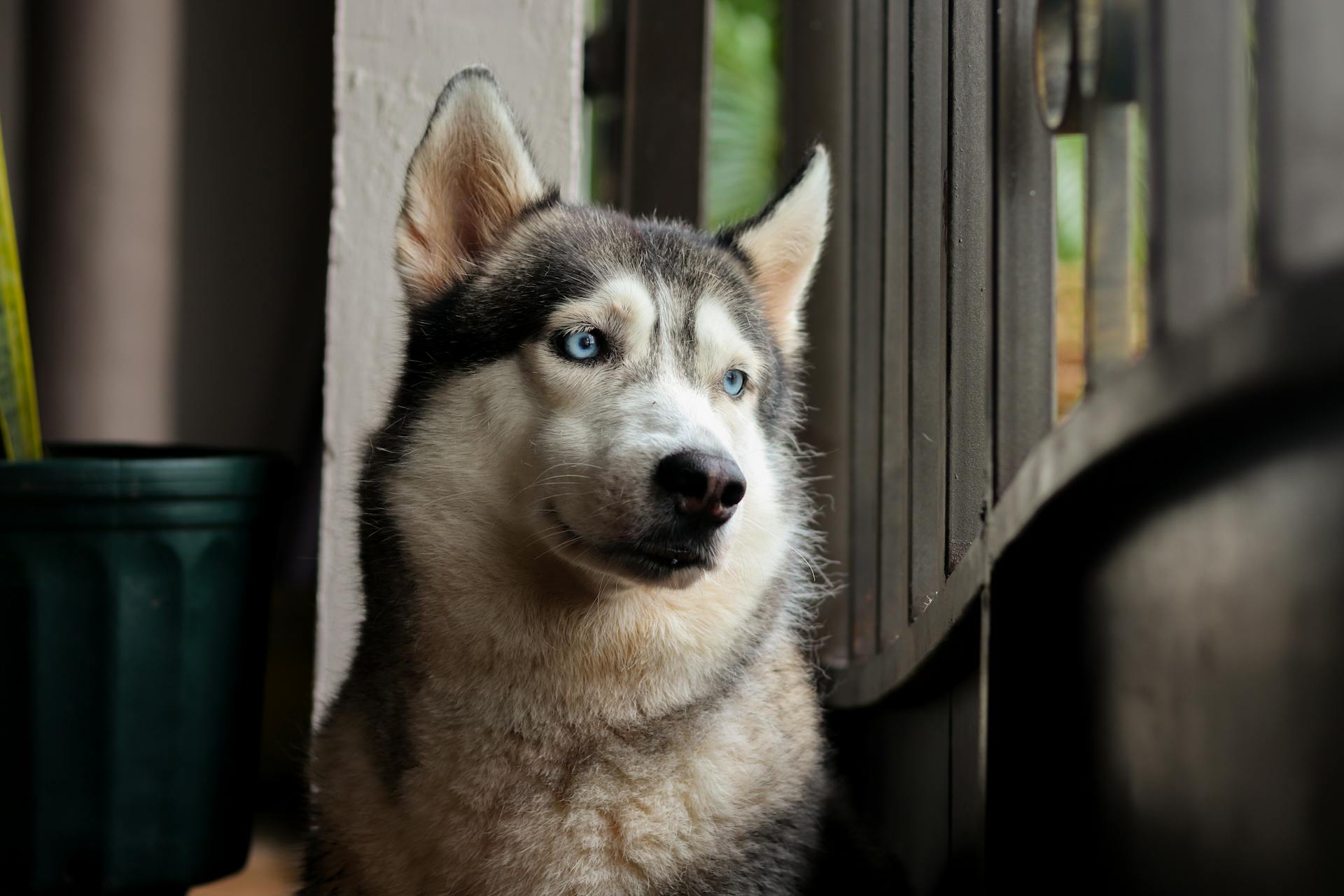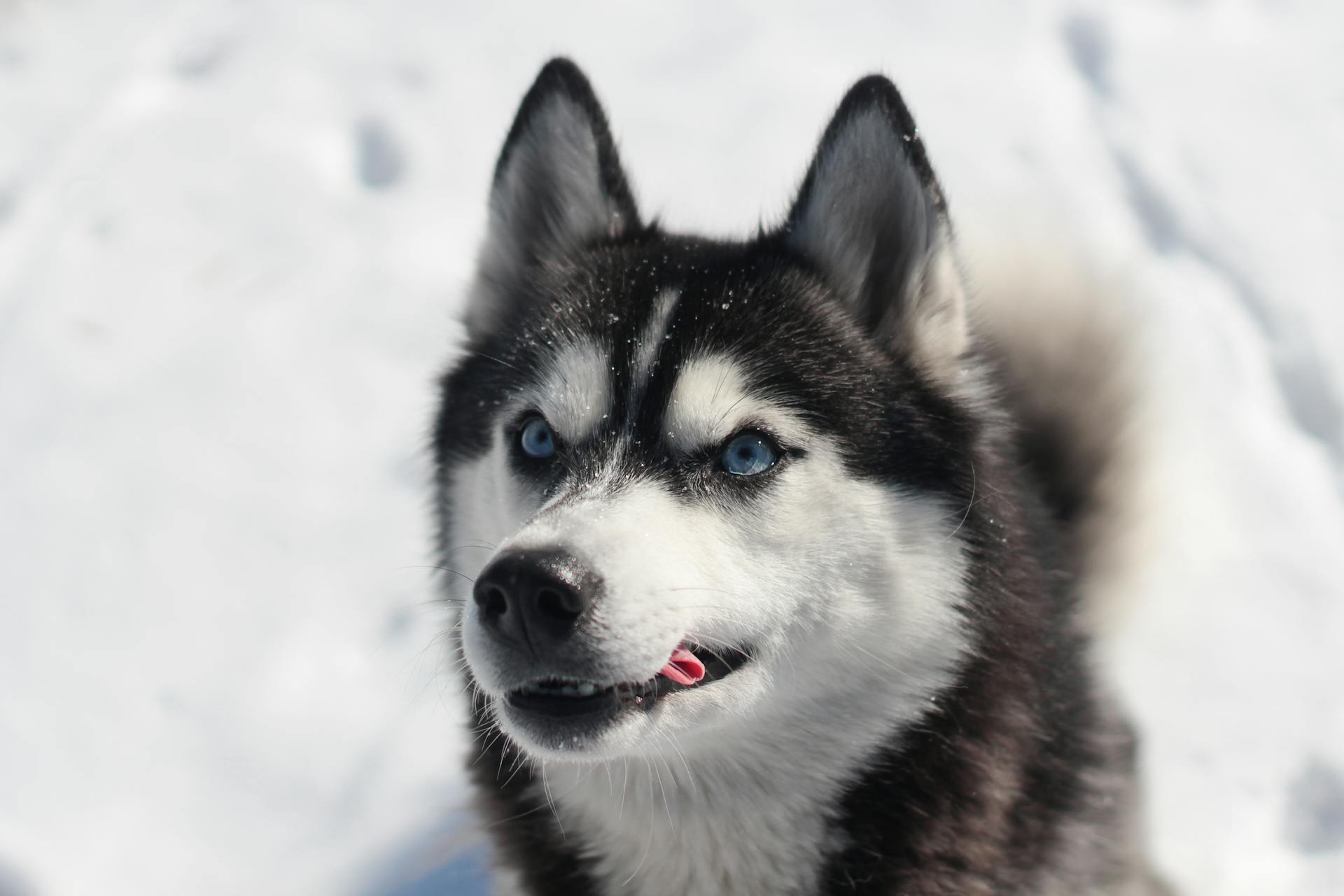
Siberian Huskies are known to be vocal dogs, and they often "talk" to their human family members. They use a variety of sounds to communicate.
Their vocalizations can be a combination of barks, howls, and whines, which can be loud or soft depending on the situation. Some Huskies even make a unique "woo" sound, which is often a sign of excitement or attention-seeking.
To understand what your Husky is trying to communicate, you need to pay attention to the context and tone of their vocalizations. For example, a Husky may bark to alert you to something, while a whine might indicate they need attention or comfort.
Worth a look: How Much Exercise Do Husky Dogs Need
Types of Vocalizations
Huskies are incredibly vocal dogs, and their vocalizations can be quite fascinating. They have a unique way of communicating with their owners and other dogs.
Huskies are known to howl, which is a common vocalization in their species. It serves various purposes, including expression of communication, instinctual behavior, social bonding, and expression of emotions.
One of the main reasons Huskies howl is because it's an instinctual behavior deeply ingrained in their genetic makeup. They are descended from sled dogs that used howling as a means of communication over long distances.
Huskies may howl to express excitement, anxiety, or loneliness, which can be a way for them to release pent-up energy or seek comfort and attention from their owners. I've noticed that my own Husky friend tends to howl more when she's feeling anxious or excited.
Barking is another type of vocalization exhibited by Huskies. It's often a way for them to communicate, and they may bark when they're trying to get attention or express excitement.
Huskies tend to bark and howl more than other breeds, and it's thought that this is due to their instinctive nature and ancestry from wolves.
Explore further: How Long Do Siberian Huskies Grow
Understanding Vocalizations
Siberian Huskies are known for their vocal nature, and understanding their vocalizations is key to building a strong bond with them. They vocalize for various reasons, including instinct, communication, and emotional expression.
Huskies are born to howl, with puppies starting to make grunting and whining sounds around 2-3 weeks old. By 7-8 weeks, they're barking and trying to howl, a behavior that's essential to their survival in the wild.
Their howls can carry up to 10 miles, making it easier for their pack members to find them. This ability is still present in domesticated Huskies, although it may not be as desirable in suburban neighborhoods.
Huskies will often respond to other howls, whether in your neighborhood or on TV, and may even react to high-pitched noises like crying babies or sirens. These cues can be a call for help or a sign of excitement.
Their vocalizations can also indicate their emotional state, with happy Huskies letting out cheerful yips and barks, and sad or upset Huskies whining or howling. Understanding these cues is crucial for building a strong bond with your Husky.
Here are some common reasons why Huskies vocalize:
- To communicate with their pack or human family
- To express emotions, such as happiness, sadness, or excitement
- To alert their owners to potential dangers or intruders
- To seek attention or interaction
- To respond to external sounds or noises
By paying attention to these cues and responding accordingly, you can build a stronger bond with your Husky and improve your communication with them.
Behavioral Factors
Siberian huskies talk as a form of self-expression or to communicate with other dogs, a trait developed for survival in the wild.
Their ancestors were pack dogs, and communication was essential for survival, so howling, whining, crying, and talking are all part of a wide range of vocalizations that mean specific things.
Huskies look to their owners for guidance, a throwback to their job as pack dogs, where a musher uses vocal commands to lead the team.
Their intelligence and propensity to be vocal make them more likely to sound like they're saying specific words.
Huskies are naturally inclined to respond to sounds they hear, such as sirens, baby cries, and the TV, which can be a source of entertainment for their owners.
To understand the meanings behind their barking, it's essential to pay attention to the context, body language, and tone of their barks.
Here are some common reasons why huskies bark:
- They may be trying to communicate a need, such as going outside or wanting attention.
- They could be bored or need more exercise and mental stimulation.
- They might be responding to a stimulus, such as a noise or another animal.
By paying attention to these factors, husky owners can better understand their dog's behavior and take steps to address any issues that may be contributing to excessive vocalization.
Concerns and Solutions
Separation anxiety is a primary cause of excessive husky screaming, especially if your solo pet doesn't have frequent opportunities to interact with humans or other dogs.
A distressed husky screams, howls, or whines a lot while displaying destructive behavior or constantly pacing. This can even lead to physical damage to their crates, homes, and themselves.
Positive reinforcement conditioning with a certified trainer or behavior expert can help your pup cope with anxiety. This type of training can be a game-changer for many huskies.
Your veterinarian might also recommend calming supplements or even an anti-anxiety prescription medication such as fluoxetine for severe cases of anxiety.
Expand your knowledge: Do French Bulldogs Have Separation Anxiety
Interesting Facts
Siberian Huskies are known to be quite chatty, and for good reason. They vocalize in response to external sounds and noises, such as sirens, baby cries, and the TV.
Their ancestors, pack dogs in the wild, used vocalization for survival, and this behavior has been passed down through generations.
Huskies may vocalize as a form of self-expression or to communicate with other dogs, giving them a unique way to connect with their pack.
Featured Images: pexels.com


